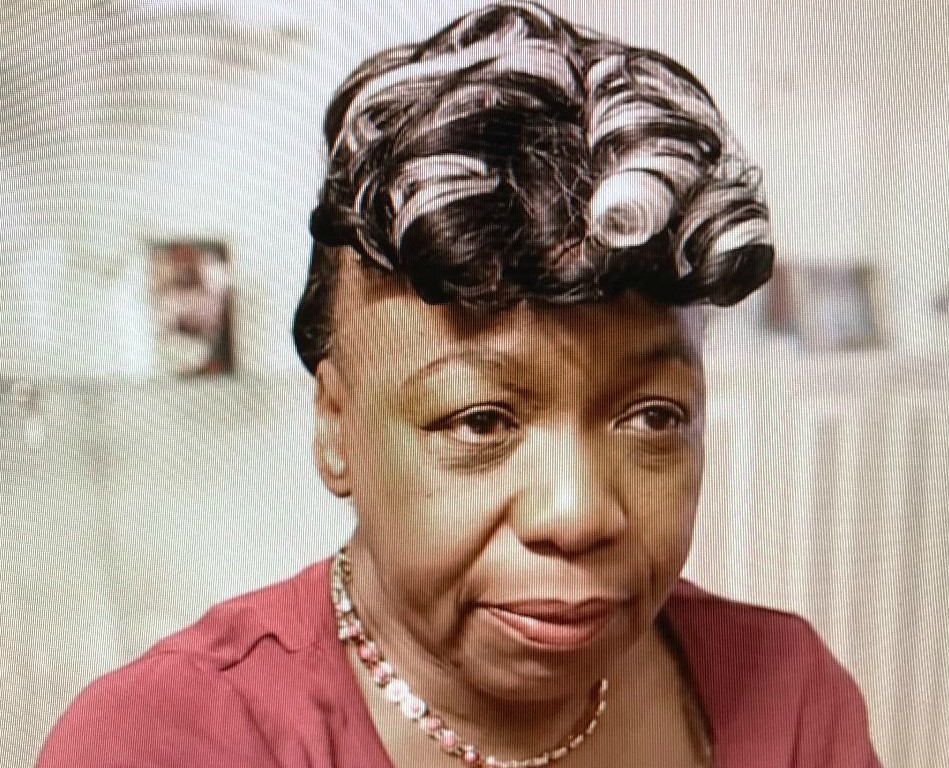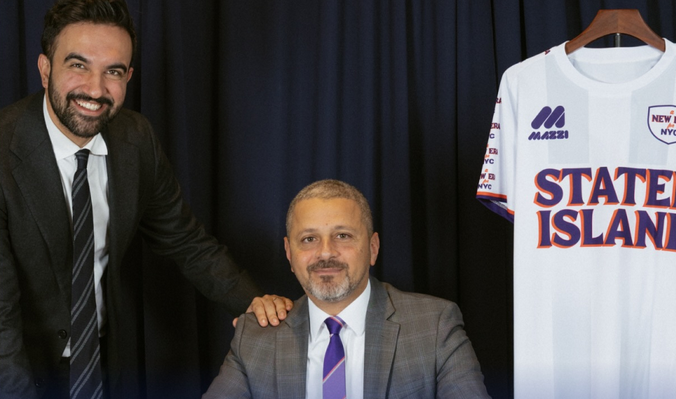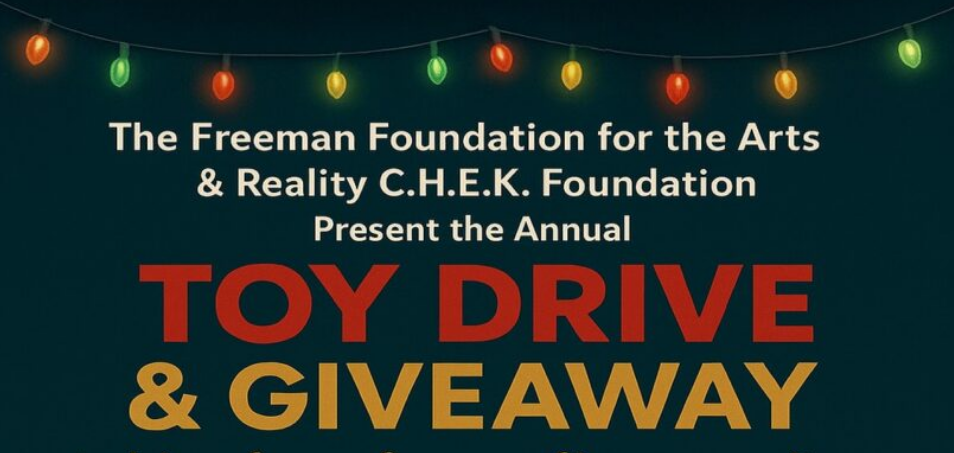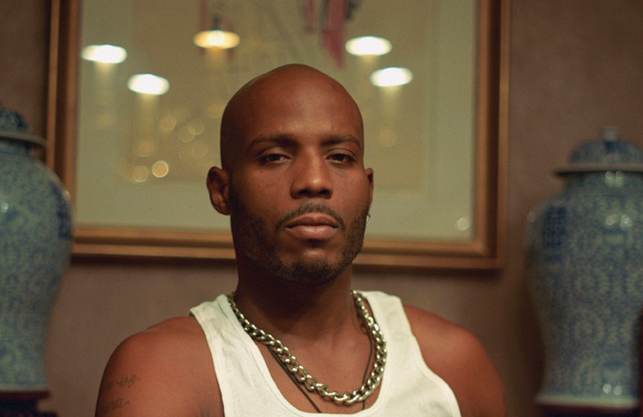[Police Brutality\Visual Art]
Kyoko Heshiimu: “My hopes for this exhibit is to open a dialogue about the overall impact that these tragedies have on not only the victims but the families and communities as a whole. Mothers are after all the foundation of each family, and therefore in effect, they are the ones who hold our communities together.”
Photo: YouTube
Staten Island exhibit explores the impact that police brutality has on mothers like Gwen Carr, mother of Eric Garner.
On Saturday afternoon, I received a call from Brooklyn-based visual artist Henry Eccleston, of the Midnight Ravers, who told me Terry Wilson–the creator of the award-winning Midnight Ravers radio program, on WBAI 99.5 FM–wanted to talk to me.
When he came to the phone, Mr. Wilson immediately starting speaking in glowing terms about a Staten Island art exhibit entitled “Mother’s Tongue: Perspectives of Mothers,” which explores mass incarceration and another issue that has been screaming for national redress, but which is often ignored by politicians: police brutality.
The “Mother’s Tongue: Perspectives of Mothers” exhibit is currently being presented at the Canvas Institute located at 150 Victory Blvd, Staten Island. For more information call 1 (718) 273 6160.
Long-time Black Star News readers know that, over the years, I’ve written extensively about the entrenched perplexing problem of racist police violence and murder. Black America must force all 2020 Democratic Presidential candidates to address this deadly serious issue.
To date, Julian Castro–former HUD Secretary under President Barack Obama–is the one candidate who has spoken out the most forcefully, without any kind of equivocation, on the need to hold police accountable when they commit crimes against Black people. He is the only one to release a detailed platform plan on how he would change policing.
Mr. Wilson was with Mr. Eccleston at the Staten Island exhibit which he described as “fantastic.” “You have to see it, I’ve never seen anything like it.” I knew immediately if Terry Wilson was giving high praise to this exhibit that it must be impressive.
Although I don’t know the artist, Kyoko Heshiimu, I do know her father, Kwame Heshiimu, who is also a member of the Midnight Ravers–and is a highly accomplished musician. Mr. Heshiimu was soon on the phone telling me about his daughter’s exhibit. Since the exhibit was already open to the public, I told him they should send me anything relevant on the exhibit so that I could get the word out quickly.
On Saturday night, I was sent an e-mail which had the flyer for the exhibit attached. I sent another e-mail asking Ms. Heshiimu for further details–along with the following three questions about her exhibit. (1) What gave you the initial idea to do this work? Explain why you decided to do this work from the perspectives of mothers? (3) What is the primary objective you hope this work will achieve?
In response, Ms. Heshiimu sent me the following letter:
“Hello. My name is Kyoko Heshiimu. First and foremost, I would like to thank you for your interest in writing an article about my exhibit. I’m very honored. The exhibit has been extended until September 29th.
“As a writer and artist, I am interested in the politics of race, gender, sexuality, violence, and identity. I want my work to reflect a narrative representative of my experience as a Black woman, as a mother, and as a survivor. I see parallels between myself and those in my community.
“This show was important to me because as the mother of 4 Black children ranging in age from 1 to 19, I have felt deep sympathy, heartache, and fear every time I hear that another unarmed Black person was killed by police.
“In 2014, after picking up my son, I walked past a crowd mixed with a large police presence, which I later found out to be because of the arrest of Eric Garner. While I waited for the bus with my son, I found out the man had died. As I stepped on the bus, the driver told me I should smile. My response was, ‘A man was just killed by police, I really don’t feel like smiling.’ There always seems to be this idea that people can just keep going about their lives after incidents like these without any regard for how these tragedies impact individuals in the community. I was paralyzed by what I had witnessed. I was shaken and hurt that a place where I frequently pass was now tarnished by death. I don’t pass by there ever without thinking about Eric Garner.
“Throughout my life, police killings of unarmed men have seemed to align themselves with pinnacle milestones in my life – I was in the 70th precinct the day before Abner Louima was assaulted reporting an assault; I gave birth to my daughter the same year Amadou Diallo was killed; my son was born the year of Trayvon Martin’s murder; I lived in a building next to the store where Jeremiah Harvey was accused falsely of sexually assaulting a white women for 22 years, and so on. It seems that these tragedies act as a constant reminder in my life of how fragile our children’s lives are, and how easy each of these individuals could be people I know and love.
“My hopes for this exhibit is to open a dialogue about the overall impact that these tragedies have on not only the victims but the families and communities as a whole. Mothers are after all the foundation of each family, and therefore in effect, they are the ones who hold our communities together.
“My decisions in life have been based around me being a mother. The thought of losing a child and having to cope with the loss of a child and build oneself up from that loss is unfathomable to me. But as I read article after article, from interview to interview, that is precisely what all of these women have done. They have become activists, they have built foundations to help others in similar situations as themselves, and they have fought for change so that nobody else would have to suffer a loss like they have alone.
“A light needs to be shone on just how difficult it is to pick up those pieces when one is surrounded daily by reminders of a child they have lost. Despite the reckless way they are portrayed in the media as criminals, I want people to see the humanity in these individuals the same way their mothers remember them: the way they are meant to be remembered.”
The “Mother’s Tongue: Perspectives of Mothers” exhibit, by artist Kyoko Heshiimu, is currently being presented at the Canvas Institute located at 150 Victory Blvd, Staten Island, NY. For more information call 1 (718) 273 6160.







